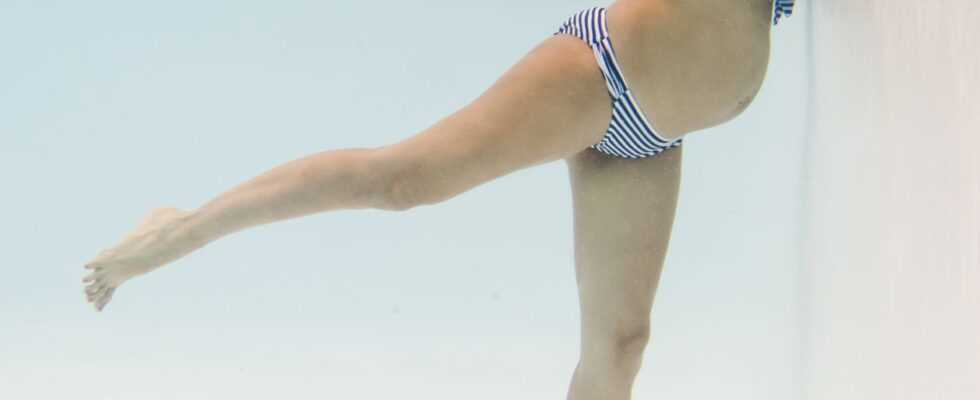During your pregnancy, it is possible to do water aerobics, a safe sport with many benefits for both mom and baby.
During pregnancy, many questions arise in particular concerning the possibility of practicing physical activity. Pregnant women often fear that pursuing a sports activity will harm the health of their child, but this idea is false, it is possible to play sports responsibly and experience many benefits.
However, it is important to know your limits to suspend the activity when necessary. Expecting mothers must also take into account the trimester in which she is (during the first trimester, it is advisable to avoid excessive activity), the progress of her pregnancy, the possible authorization to practice a given sport. by the gynecologist and his level of training in the past.
Among the sports most recommended during pregnancy, there are those that can be practiced in water and in particular aquagym, also suggested by gynecologists as an activity to practice from the first months of pregnancy.
All the benefits of aqua aerobics during pregnancy, from muscle tone to reducing pain during childbirth
Playing sports in water gives many advantages compared to other sports, such as taking advantage of the absence of gravity, which makes it possible not to feel heavy and tired during the exercises. In water, the body weight is about 1/6 of the actual weight, an advantage especially during the last months of pregnancy, when the belly is heavy on the back and can easily cause low back pain and sciatica. Also, the reduced weight allows you to perform many types of movements without risking joint trauma.
This lightness allows you to perform repetitions better, while being more comfortable on your supports. You can also perform exercises that are not recommended during pregnancy, such as supine exercises, a position that you cannot always adopt for the last few months, because enlargement of the uterus can compress the vena cava and cause pressure drops.
Indeed, the resistance offered by water makes it possible to obtain a muscular toning which is sometimes superior to the activity exercised outdoors, in particular at the level of the back, the pelvis and the perineum, i.e. the parts of the body most affected by pregnancy and at birth. It even helps improve pain tolerance during childbirth.
A relaxing and stimulating activity
Moving around in water helps relieve hyperlordosis, the curvature of the lumbar spine which increases with the growth of the belly, relieving or preventing back pain, which is particularly typical in the last months. Water aerobics is relaxing thanks to slow gestures and muffled sounds which also help you to come into contact with your baby, especially during exercises in immersion and in the fetal position. Thanks to the pressure exerted by water, it helps relieve the swelling of the ankles and legs, which is very common during pregnancy, by promoting the surface circulation of the lower limbs, which are one of the areas most prone to stagnation. venous and lymphatic. From an emotional point of view, finally, it has been proven that moving around in water stimulates the production of endorphins, the hormones that contribute to well-being.
The activity in water increases the oxygenation of the maternal blood, which is automatically routed to the fetus, which receives better nutrition. It has therefore been shown that the benefits of this sport also manifest themselves on the baby: he will be born more robust, with a good birth weight and a less tendency to get sick in the first years of his life.
When can I start water aerobics when I am expecting a child?
It is advisable to wait until you have passed the third month of pregnancy and, in general, at the time of registration, you must present the certificate issued by your gynecologist. If the pregnancy goes well and the gynecologist allows it, water aerobics can be practiced throughout the pregnancy, 2 to 3 times a week.
Tips and Cautions
Make sure you drink as soon as you finish your workout, as a lot of fluids also get lost in the water. Contraindications to aquatic activity are few and relate to diseases such as gestational hypertension, infectious diseases, diabetes, overweight or excessive thinness or dysfunction of the thyroid.
If you have always been sedentary, specific training with respiratory education may be advised. In this case, it is important to confide in a professional. If you experience dizziness, palpitations, tiredness, uterine contractions or bleeding, stop training and go to the gynecologist, maybe a little lighter activity will be enough.
As a reminder, during pregnancy, you can practice cycling, swimming or simply walking.
10 foods to favor during pregnancy
